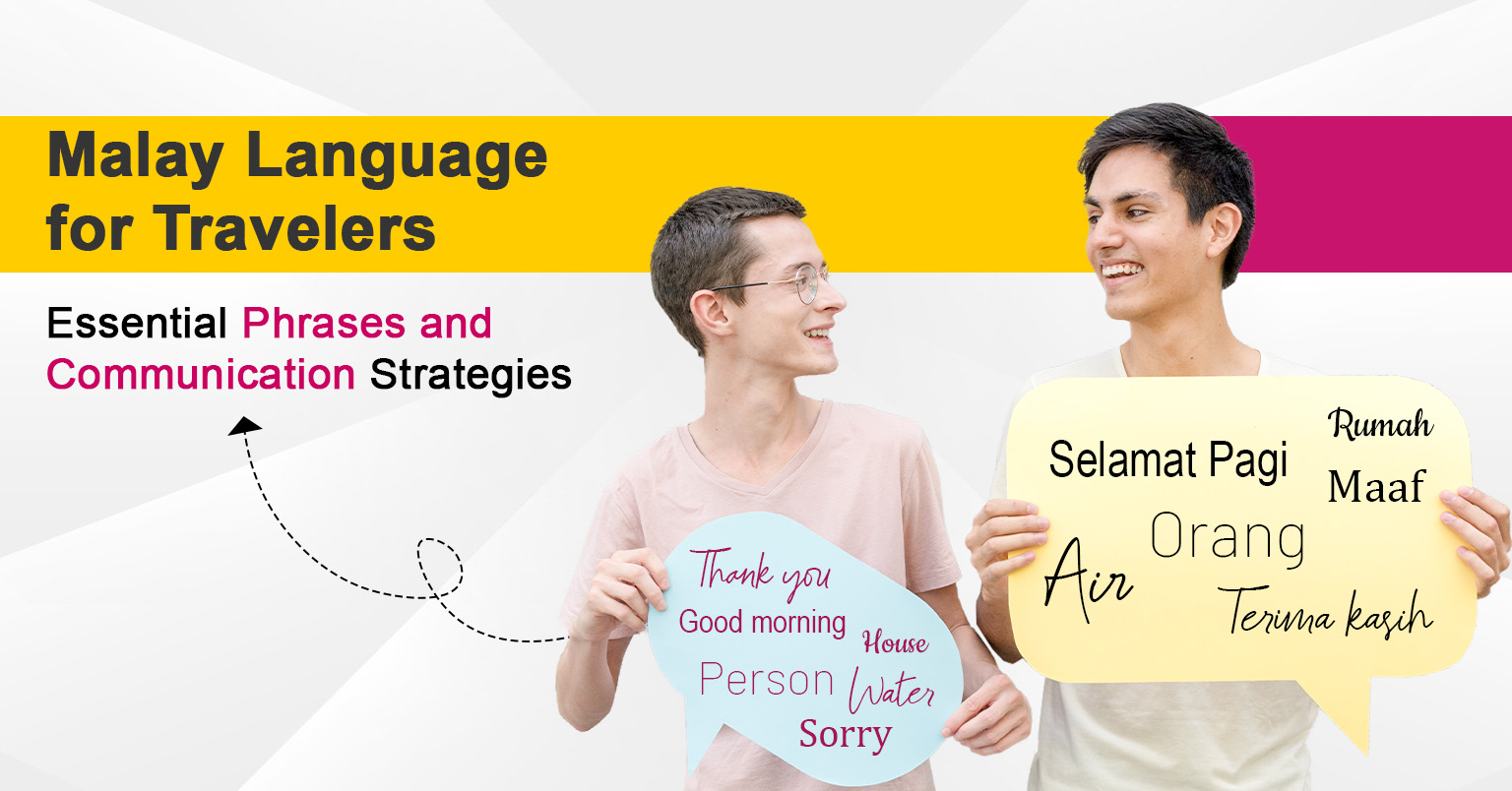Introduction
Visiting a new country is an adventure, an exciting blend of cultural exploration, delicious food, and unexpected faces. Still nothing improves travel more than being able to connect with locals in their native language. If you are planning to visit Malaysia, Brunei, or certain parts of Indonesia or Singapore, knowing some Malay can make all the difference.
Malay language course in Singapore can be your first step to exploring meaningful cultural experiences in the area. If you are an explorer eager to get off the beaten path or a food lover hoping to order street food like a local, learning a few key phrases and communication strategies in Malay will go a long way.
Why Learn Malay Before You Travel?
1. Connect with Locals on a Deeper Level
Most Southeast Asians are hospitable and friendly, but you can start having genuine conversations the moment you try to speak their Malay language. Locals appreciate the effort, and even a simple greeting in Malay can turn a polite smile into genuine comfort.
2. Manage Everyday Situations with Confidence
If you are asking for information, ordering food, or checking into a hotel, knowing these basic Malay words will help you avoid misunderstandings and make your travel smoother.
3. Learn Cultural Awareness
Learning even a bit of the local language is a sign of respect. It shows you are not just a tourist, you are someone who wants to immerse in the culture. This small effort often results in better service, insider tips, and more immersive experiences.
Essential Malay Phrases Every Traveler Should Know
Here are some must-know phrases that are especially useful for travelers. Malay is a phonetic language, so pronunciation is relatively straightforward.
Greetings and Basic Protocol
- Hello – Halo or Hai
- Good morning – Selamat pagi
- Good afternoon – Selamat tengah hari
- Good evening – Selamat petang
- Good night – Selamat malam
- Goodbye – Selamat tinggal or Jumpa lagi
- Thank you – Terima kasih
- You’re welcome – Sama-sama
- Please – Sila or Tolong
- Sorry / Excuse me – Maaf
Asking for Directions
- Where is…? – Di mana…?
- Toilet – Tandas
- Bus stop – Perhentian bas
- How do I get to…? – Bagaimana saya pergi ke…?
- Left / Right / Straight – Kiri / Kanan / Terus
Shopping and Eating Out
- How much is this? – Berapa harga ini?
- Too expensive – Terlalu mahal
- Cheaper, please – Boleh kurang sikit?
- I want this – Saya mahu ini
- Delicious – Sedap
- Not spicy – Tak pedas
- Vegetarian – Vegetarian or Tidak makan daging
Emergency and Help
- Help! – Tolong!
- I’m lost – Saya sesat
- I need a doctor – Saya perlukan doktor
- Call the police – Telefon polis
Communication Strategies for Travelers
Understanding a few phrases is great, but you can be even more successful if you combine them with clever communication techniques.
1. Speak Slowly and Clearly
Even if your vocabulary is limited, clear pronunciation can make a big difference. Locals will frequently try to help or even switch to English if you are trying to communicate.
2. Use Gestures
Non-verbal communication can fill many gaps. Pointing, smiling, and using hand gestures are all useful tools when words are not sufficient.
3. Repeat and Rephrase
If someone doesn’t understand you the first time, try speaking more slowly or using different words. Rephrasing is beneficial.
4. Practice Listening
One of the finest methods to learn is to listen to local talk. Try watching Malay YouTube videos, listening to local radio, or simply listening to conversations at food stands.
How a Malay Language Course in Singapore Can Help
While picking up a phrasebook or using a translation app is helpful, nothing beats formal training when you really want to utilize the language properly.
Structured Learning for Quick Progress
A Malay language course provides organized lessons designed specifically for beginners and travelers. You will learn practical vocabulary, pronunciation advice, and real-life conversational situations.
Confidence Through Practice
Courses often include role-play and interactive sessions where you can practice ordering food, asking for directions, or checking into a hotel—all in Malay. This boosts your confidence and helps you remember phrases more naturally.
Cultural Insights
There’s more to Malay than just words; it’s also about culture. Knowing local customs, etiquette, and values helps make your travel more meaningful. A decent class will teach you how to welcome elders, be respectful, and avoid cultural faux pas.
How to Learn It: Inspilingua’s Malay Language Course in Singapore
Inspilingua’s Malay language course in Singapore caters to travelers, expats, and locals who want to connect with Malay-speaking communities more deeply, making it an effective and enjoyable way to learn the language.
Why choose Inspilingua?
- Experienced Native Instructors: Our teachers are passionate about helping you gain practical speaking skills fast.
- Travel-Focused Curriculum: Learn exactly what you need for real-world travel situations from ordering food to handling emergencies.
- Supportive Learning Environment: We foster a friendly and encouraging classroom atmosphere where mistakes are part of the learning journey.
- Interactive & Practical Lessons: Our classes focus on real-life scenarios, role-plays, and conversation practice to boost your confidence from day one.
- Small Class Sizes: Get more personal attention and practice time with our interactive teaching style.
- Located in the Heart of Singapore: Easily accessible and surrounded by multicultural inspiration.
Conclusion
Traveling is much more than pursuing sights—it is about connection, understanding, and togetherness. So learning Malay isn’t just picking up skills, it is providing yourself the opportunity to step on the other side and experience real adventures.
If you are visiting Malaysia for business, backpacking through Borneo, or just want to explore the extensive Malay influence in Singapore, a Malay language course in Singapore is an excellent place to start.
Ready to make your next trip unforgettable? Start learning Malay today and say “Selamat datang!” to a world of travel opportunities.

